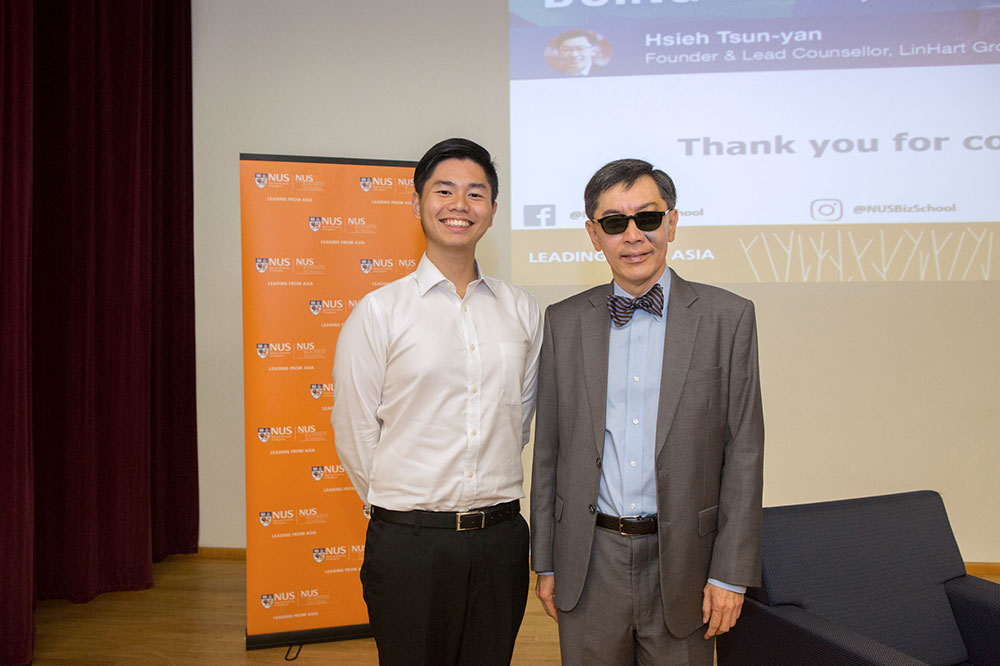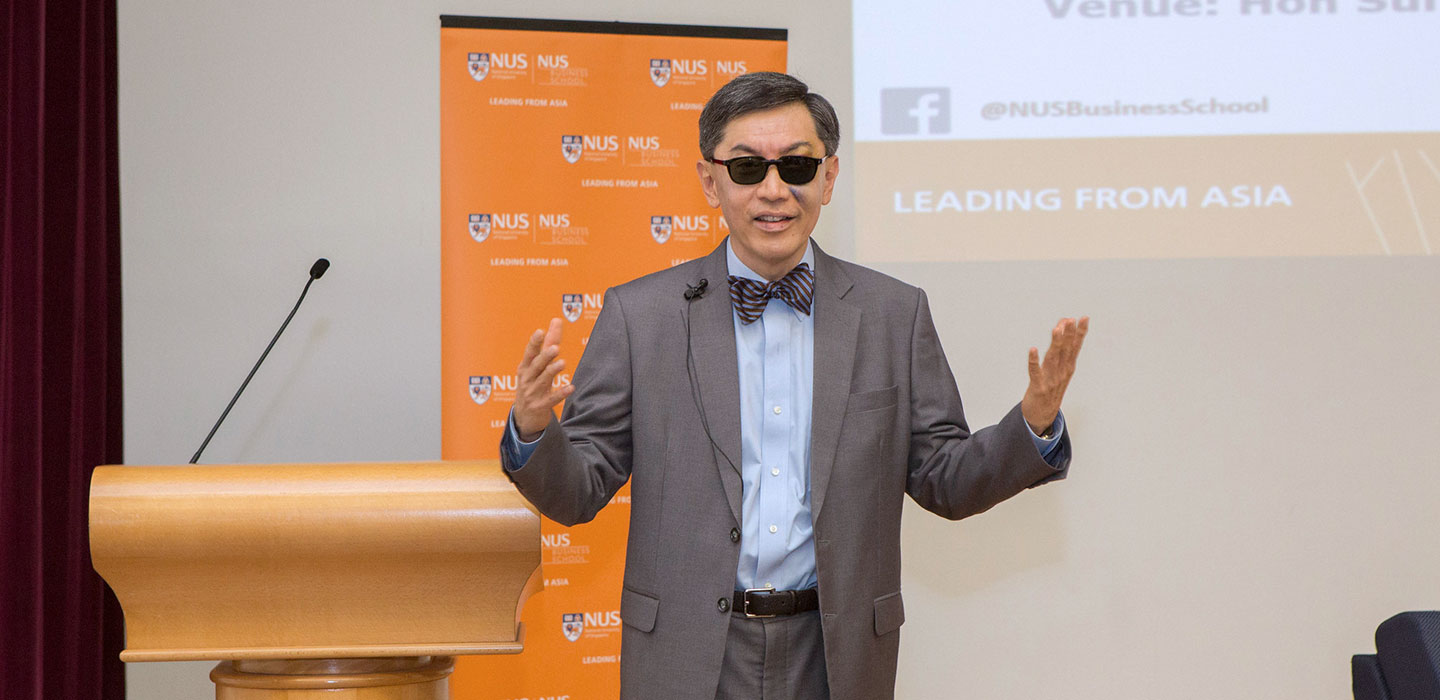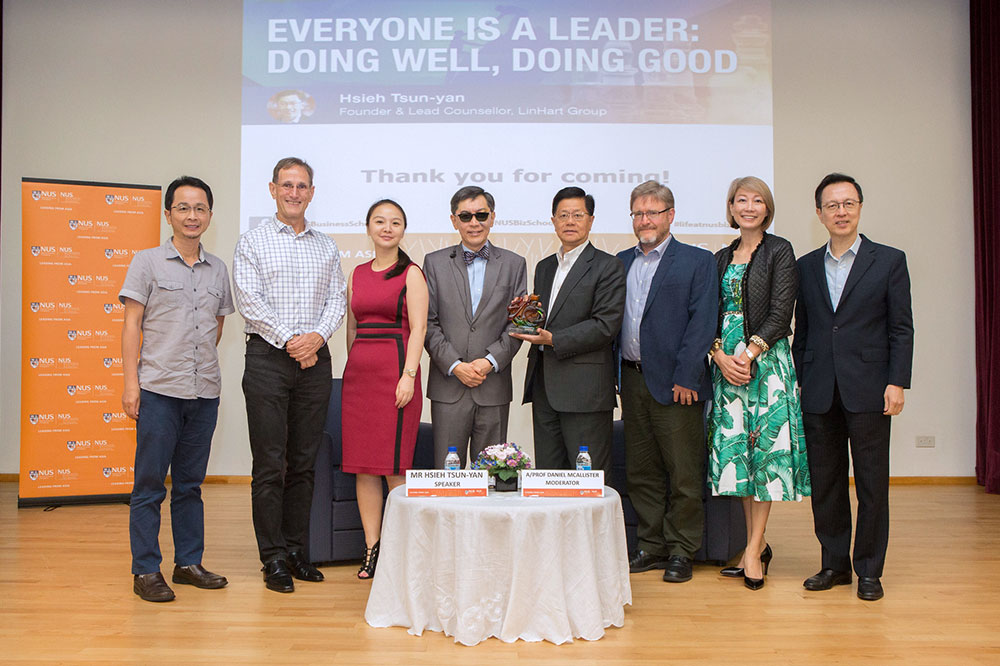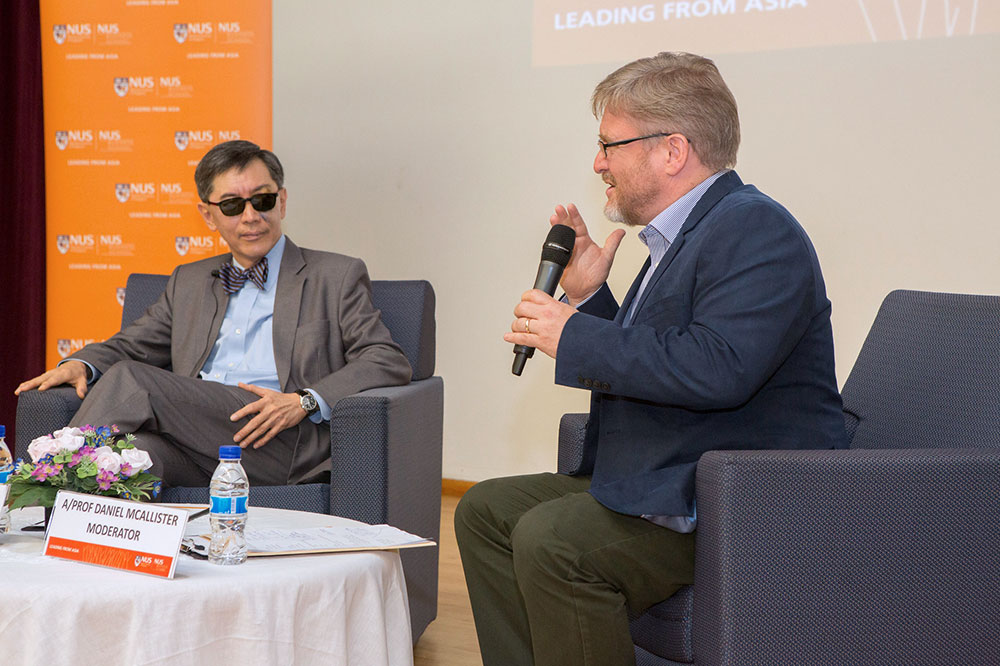At the latest Leadership Dialogue Series (LDS) Mr Hsieh Tsun-yan, Founder and Lead Counsellor of Linhart Group, shared his thoughts about how everyone can be a leader, to do well and to do good.
NUS BBA Year 2 Tan Jun Wei, a double degree student with Chemical Engineering, had one main takeaway after the talk “Everyone is a leader: doing well, doing good” – that life itself is a leadership school. Jun Wei shares more about the session.

BBA student Tan Jun Wei (left) with Mr Hsieh Tsun-yan, Founder and Lead Counsellor of Linhart Group
Mr Hsieh Tsun-yan’s views on leadership were strongly influenced by his experiences in studying at Harvard Business School and his early days of working at McKinsey & Company. He believes that under the right circumstances, anyone can be a leader, drawing an example of Winston Churchill to make his point. He also emphasised the importance of doing good, which involves acting in ways that is beneficial to all instead of merely trying to do well. Yet, the two are not mutually exclusive, as he explained using the example of Panera Bread, which branched off Panera Cares, a restaurant that utilises a “Pay with you can” concept.
BBA Year 2 Tan Jun Wei, a double degree student with Chemical Engineering, had one main takeaway after the talk, that life itself is a leadership school.
Mr Hsieh proposed that there are four main aspects of life that teaches lessons about leadership, whether we know it or not. They are parenting, life partners, community service, and the workplace.
- In the area of parenting, even as toddlers, we are already acting as leaders. Our refusal to give in to our parents’ instructions, for example to shower or stop playing, is in and of itself leadership as we try to exert our dominance over our parents.
- In the area of life partners, it is all about the push and pull effect, and having the right influence. He even joked that in a relationship, men are the generals who set the general direction, but women are the majors who make major decisions. In fact, he added that this is true for himself as his wife has always been a positive influence on him.
- As a strong advocate of community service, this aspect is one of the most powerful and effective arenas for training leaders. Community service is purely on a voluntary basis and it is not difficult for people to go the extra mile in assuming leadership roles. In this process, it is much easier to groom and identify leaders.
- At the workplace, the leader is not the person with the highest rank. Rather, there are daily opportunities for leadership to come through, and it is important to grab every opportunity to be a leader. Even in meetings, every participant has an obligation to make that meeting effective, and it is up to the individual to have the courage to speak up and influence whenever necessary.
Personally, I really agree wholeheartedly with Mr Hsieh’s words. I always thought that leadership was about one’s upbringing, environment, and influences throughout the course of one’s life. The talk reinforced my views on leadership, and I also took away good advice on how to be an effective leader in the business world.
Overall, it was a truly insightful talk filled with relevant real-life examples, as well as personal anecdotes from the speaker. The session concluded with a Q&A session moderated by our NUS Business School’s Department of Management & Organisation’s Associate Professor Daniel McAllister.
For more information about the NUS BBA programme, please visit bba.nus.edu.sg.






